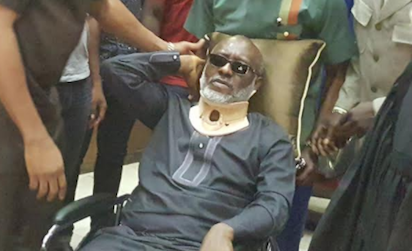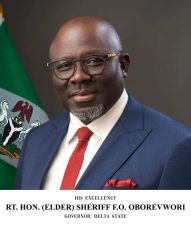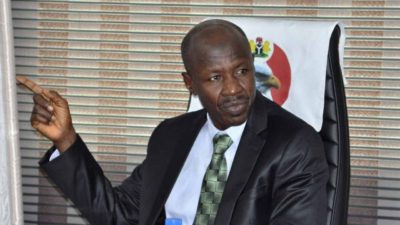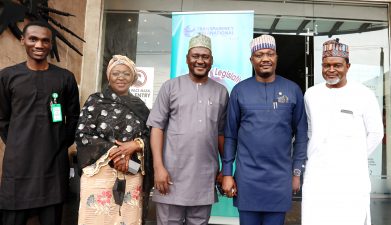By Tabia Princewill
While I completely understand the immense hope raised by the APC presidential campaign in 2015 and President Muhammadu Buhari’s subsequent victory, ordinary citizens must recognise we have failed to mobilise for the actualisation of those promises. Public opinion is the force that shifts policy making. While we continue to pretend judicious policy-making in Nigeria is tough, near impossible, or “witch-craft” (and, therefore, out of the reach of the uninitiated), the reality is that whatever the public values, the government is forced to value if it wants to stay in power. Have we shown we value real, sustainable change?”
Virtually no topic in Nigeria can be honestly discussed without referring to the impact of corruption, the dark underbelly of all our issues and anti-social behaviours in Nigeria.
While I completely understand the immense hope raised by the APC presidential campaign in 2015 and President Muhammadu Buhari’s subsequent victory, ordinary citizens must recognise we have failed to mobilise for the actualisation of those promises. Public opinion is the force that shifts policy making.
While we continue to pretend judicious policy-making in Nigeria is tough, near impossible, or “witch-craft” (and, therefore, out of the reach of the uninitiated), the reality is that whatever the public values, the government is forced to value if it wants to stay in power. Have we shown we value real, sustainable change?
In our country everyone has a price and its frightening. Besides complaining about the slow pace of reforms then turning around to engage or defend one corrupt practice, we have never mobilised to fight corruption and now Nigerians are paying with their lives.
Or rather, the poor pay, as always. The rest of us are arm chair commentators who imagine we can go on this way as spectators to the dangers and monsters coming our way.
Current security network
Audu Ogbeh, the Minister of Agriculture, was quoted as saying that NEMA is redesigning village settlements to bring communities living far apart together for their own safety, “otherwise we don’t have enough security to guard every settlement. Unless you have 10 to 11 soldiers to guard each village, there is no way that the current security network can cover the needs of villagers who may be attacked in the afternoon or night”.
This statement adequately portrays the Nigerian reality outside of urban centres. Many, if not most, of our people are completely cut off from the mainstream networks and conversations the rest of us take for granted. Villages in many parts of Nigeria exist with virtually no contact with the state or its representatives (security agents, courts, health care etc.). If one doesn’t ask what happened to the rural development budgets, the roads and infrastructure budgets, one is going nowhere fast. It takes days to reach some communities, days for news to filter in and out due to bad roads and poor regional integration. Why? Simply because of corruption. From rural electrification to a lack of education, environmental stress and the complete abandonment felt by many Nigerians who fend for themselves as if they belonged to no nation, as if their state governors didn’t receive monthly allocations for their care, it is no wonder violent attacks are erupting virtually all over Nigeria.
Whether Buhari or any other candidate had won the 2015 elections the situation wouldn’t be much different because the way we’ve been operating, coupled with our tacit acceptance of this system, was a high speed train headed straight for a wall. Mr. Ogbeh’s statement points to the failure of central planning. Why are there still communities living without access to the internet, to communication, to police stations etc.? The “combining” of settlements the minister is referring to should have been done naturally and organically decades ago through investments from the local, state and federal government levels.
If these entities, the state governments in particular, had focused on job creation, provided the enabling environment to grow enterprise and opportunity, villages would have become more prosperous towns, with thriving, educated citizens who could make demands on their government, ask for more services etc. which would create linkages between divided or distant communities. Instead, those living in remote rural areas are experiencing a life comparable to Europe’s poorly connected villages in the 18th century where highways were full of brigands and no one dared travel past a certain hour unescorted.
Ironically, believe it or not, in the Middle Ages in Africa, according to the written testimony of Arab travellers who visited West Africa for trade in gold, salt and other goods, cities such as Timbuktu and others in the Sahel region disposed of well-planned routes which were safe to travel.
Even the Portuguese visiting the Benin kingdom said they found large, well-lit alleys and cities where town planning rivalled what was found in the West. What happened? In many aspects, our organisational capacities today can’t rival what once obtained pre-colonisation, which many might be surprised to find.
Technological advances in Nigeria, as in most of Africa, have not happened in parallel with human capacity development. In fact, we embraced the materialism of the West, to the extreme, building bridges and airports to nowhere, which most of our people are too poor to use.
Inefficiencies and injustices
If we are honest with ourselves, virtually every government at the federal level would deserve to be probed. It’s the inefficiencies and injustices of the past which are all coming to a head today. None of us paid attention then, and only a few of us are paying attention now.
We’ve continuously failed to recognise the immensity of the problem and the part we all need to play in making things better. Nigerians, did we think we could vote Buhari in then sit and watch him magically fix issues without our input?
To put it simply, the “bad guys”, the saboteurs of our economy, the arms dealers who put guns in the hands of angry, unemployed youth, are still winning in Nigeria because they know how easy it is to divide us, to confuse us, and to make us fight their battles on the grounds of ethnicity and religion.
They know how weak our sense of community is, that we don’t do anything to help one another, to uplift communities, outside of occasional actions to look good at church or other religious settings.
We’ve always divorced ourselves from our government, pretending they don’t represent us while the truth is that they are exactly who we are, the mirror image of our secret, shameful desires and behaviours laid bare. Allegations suggesting Nigeria’s defence budget has always filtered into private pockets explains why the Nigerian military which fought in Liberia and other countries was initially unable to tackle Boko Haram.
Our country has been sabotaged from the inside and we’ve hailed vandals as heroes. Our country’s failure isn’t just the result of political failure, it’s a result of all of ours as well. (Vanguard)




